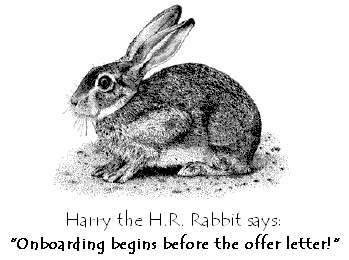Intro
About Me
The Manifesto
Previous Posts
Josie and the Usage Quirks
Good Stuff: 8/07/07
Wundergrammar: Colon-Break Quotes
Good Stuff: 8/01/07
Good Stuff: 7/26/07
The Wundergrammar: Semicolon Quotes
Good Stuff: 7/17/07
Bemusement for me,Amusement for the CCed
In the future they have no spaces
Good Stuff: 7/9/07
Back to Main
Delicious
Links
Bartleby
Common Errors in English
Netvibes RSS Reader
Online Etymology Dictionary
Research and Documentation
The Phrase Finder
The Trouble with EM 'n EN
A Capital Idea
Arrant Pedantry
Blogslot
Bradshaw of the Future
Bremer Sprachblog
Dictionary Evangelist
Double-Tongued Dictionary
Editrix
English, Jack
Fritinancy
Futility Closet - Language
Language Hat
Language Log
Mighty Red Pen
Motivated Grammar
Omniglot
OUPblog - Lexicography
Style & Substance
The Editor's Desk
The Engine Room
Tongue-Tied
Tenser, said the Tensor
Watch Yer Language
Word Spy
You Don't Say
Dan's Webpage
On Onboarding
Monday, August 13, 2007 8:29 AM
Think reactive, not reactionary
Monday, August 13, 2007 8:29 AM
Oh, corporate-speak! I've gotten used to using dialogue as a verb, and employees here also have the usual, predictable tendency to verb software names... but I got an email from H.R. last week with the word onboarding and I did a double-take.
If you found this page with a query like "Is onboarding a word?" then yes, Virginia, it's a word. The earliest cite I could find was a July 1995 "personal communication" quoted in Joseph Donald Novak's 1998 book Learning, Creating, and Using Knowledge: "I think this would have a real value for onboarding new hires."
But what is onboarding? According to Random Wikipedia Guy:
Though I suspect that the definition at Systematic HR is closer to the mark:
I appreciate the candor, in any case. The important difference between onboarding and other terms like hiring and orientation seems to be that it covers a longer part of the process. Look what I find when I cast my net out into the Googlesphere:
However fascinated I am by corporate-speak, I'm not so much appreciating a piece of fine art as I am poking a squishy black thing with a stick. I note with some trepidation that you can also onboard someone.
Well, that's all for me. What's today's corporate-speak lesson, Harry?

If you found this page with a query like "Is onboarding a word?" then yes, Virginia, it's a word. The earliest cite I could find was a July 1995 "personal communication" quoted in Joseph Donald Novak's 1998 book Learning, Creating, and Using Knowledge: "I think this would have a real value for onboarding new hires."
But what is onboarding? According to Random Wikipedia Guy:
Onboarding is the process of interviewing, hiring, orienting and successfully integrating new hires into the organization's culture.
Though I suspect that the definition at Systematic HR is closer to the mark:
So what is onboarding? First of all, it's one of these annoying buzz words we have in HR these days. It is an important one though, and the practice has initiated all sorts of new tactics for recruiting and retention. Onboarding is the process of integrating employees into their new work environment.
I appreciate the candor, in any case. The important difference between onboarding and other terms like hiring and orientation seems to be that it covers a longer part of the process. Look what I find when I cast my net out into the Googlesphere:
Timing: In my opinion, onboarding begins with the offer letter.
Onboarding begins before the first contact with a candidate and evolves through the five stages leading up to and following the first contact, offer, acceptance and start day.
Actually, onboarding can begin as early as during recruitment by giving clear expectations of the job.
Onboarding begins with the first interview and will continue long after the 1 or 2 day induction.
Onboarding begins the moment the candidate first connects. with the company.
Onboarding begins with the recruitment process,. which is the employee's first interaction with the firm.
However fascinated I am by corporate-speak, I'm not so much appreciating a piece of fine art as I am poking a squishy black thing with a stick. I note with some trepidation that you can also onboard someone.
Well, that's all for me. What's today's corporate-speak lesson, Harry?

Think reactive, not reactionary


